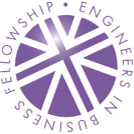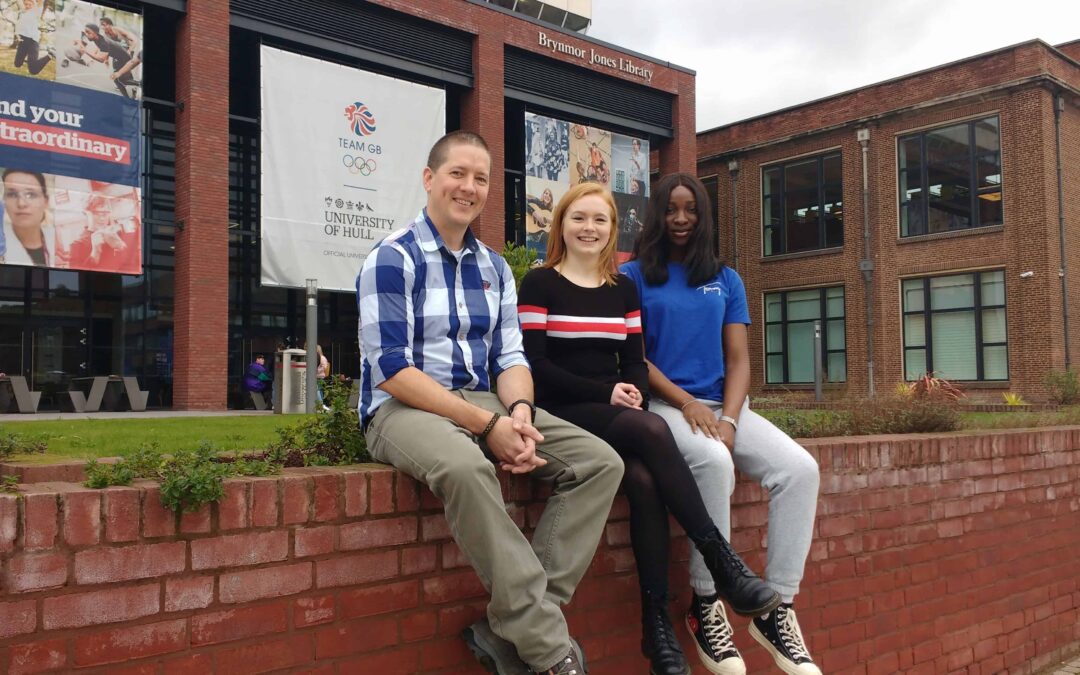Hull Engineering Students are Finalists in National Business Innovation Competition
On 28 October 2019 engineering students, graduates and postgraduates will compete for a prestigious Engineers in Business Competition award and a share of a £10,000 prize pot.
Ten teams from UK universities have been short-listed to pitch their business innovations at the Champion of Champions Grand Final at the Royal Academy of Engineering – the awards ceremony will be attended by Lord Sainsbury of Turville, the patron of the Engineers in Business Competition (EIBC).
Dom Butler (Mechanical Engineering), Heather Charlesworth (Medical and Mechanical Engineering) and Oyin Oladimeji (Chemical Engineering) make up the Natural Fibre Plastics team from the University of Hull. The team has developed an innovation that aims to tackle the plastic crisis by creating an alternative ‘Hemp Plastic’ which has vastly superior environmental properties. The natural fibre plastic made from hemp plants will be more sustainable and have accelerated decomposition.
The Engineers in Business Competition inspires engineers to gain business skills through their university enterprise competitions. They then harness their combined engineering and business skills to create innovations that can change people’s lives and improve the lived environment.
The Natural Fibre Plastics team came first in its university heat of the Engineers in Business Competition receiving £1,500 to assist with the development of its concept. The team then entered the Engineers in Business Grand Final and won a place in the Champion of Champions Final, where they will be up against other engineers with equally forward-thinking ideas. Will Natural Fibre Plastics walk away with the Gold for their fresh idea to tackle the plastics crisis facing the world?
Commenting on what inspired the idea, team leader Dom Butler said: “The University of Hull has a Global Challenge module where it tries to solve a societal problem by identifying a barrier that prevents business from solving it. This is quite a free market capitalist way of problem solving and it’s unusual for a university to consider it. Since the University of Hull is already thinking outside the box, we thought we’d keep thinking outside it until someone told us to stop! So, we asked the question, Why don’t we use fibre-based plastic instead of normal plastic?”
The Dragons’ Den Style competition will see each pitch team present and answer questions from the judges who are:
- Ana Avaliani, Head of Enterprise, Royal Academy of Engineering
- Tim Chapman, Director, Arup – Infrastructure
- Andrew Doe, a Sainsbury Management Fellow, serial entrepreneur, a highly experienced e-commerce and digital leader and a non-exec director
- Kate Beresford, Head of Membership and Operation, Enterprise Educators UK
The judges are looking for:
- Originality and viability of the idea
- How the idea helps to solve a real problem in society
- The benefits to the target audience/customer
In addition to the Gold, Silver and Bronze Awards, there will be two other exciting prizes:
- Lord Sainsbury Prize – Lord Sainsbury will award this prize to the team he believes has created a business idea that will have a big impact in society
- People’s Prize – the winner of this prize will be determined by the number of public votes based on the finalists’ videos which can be viewed on this website
The Engineers in Business Competition supports and promotes the idea of a combined engineering and business education. In a world that is moving and developing so rapidly, these skills are vital in order to tackle challenging global problems and to make lasting positive changes to the way we live.
Dom said the team believes that it is important for engineering students to learn business innovation skills: “The Sinclair C5, an electrically assisted pedal cycle, is a fine example of why engineers benefit from learning business skills. The C5 was a financial disaster because Clive Sinclair had no business acumen, despite being a revolutionary product and ahead of its time.
“We learned many valuable things by competing in our university enterprise competition, including how to together, remotely. Once the end of year exams finished, we all went home and would arrange voice and video conferences to discuss our ideas and put together a plan. We then each did the tasks we were assigned and managed a group portfolio where everyone could see and edit what the others had done. This allowed us to produce something that was a little more outside of our comfort zones.”
The team-work and clever solution has certainly struck the right chord with the judges!
For further information on Natural Fibre Plastics, contact Althea Taylor-Salmon at eibcompetition@eibc.org.uk.

